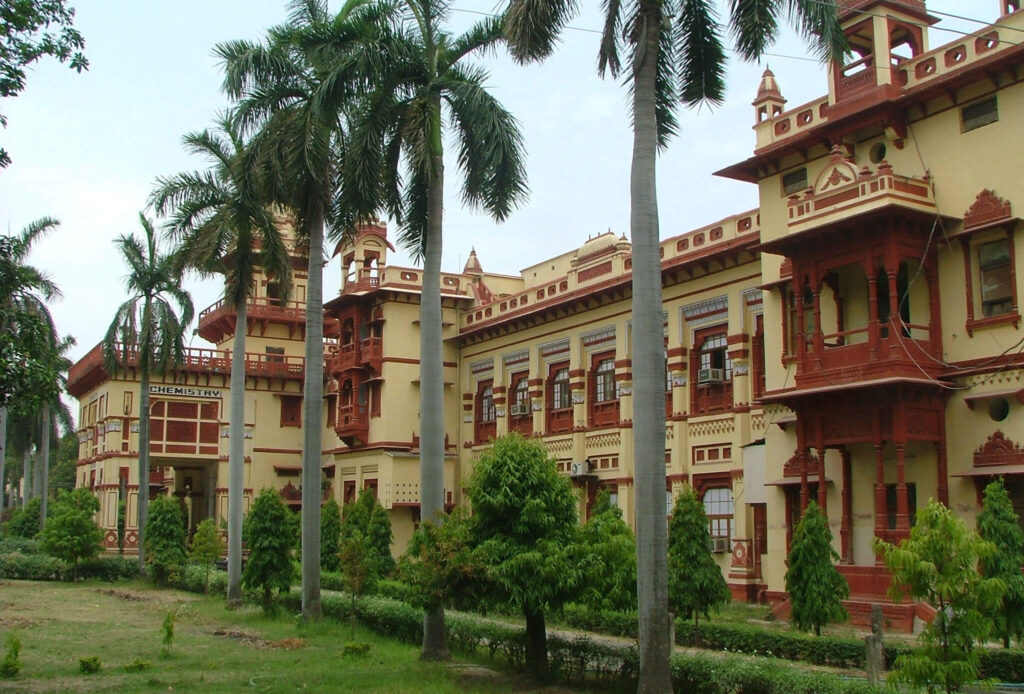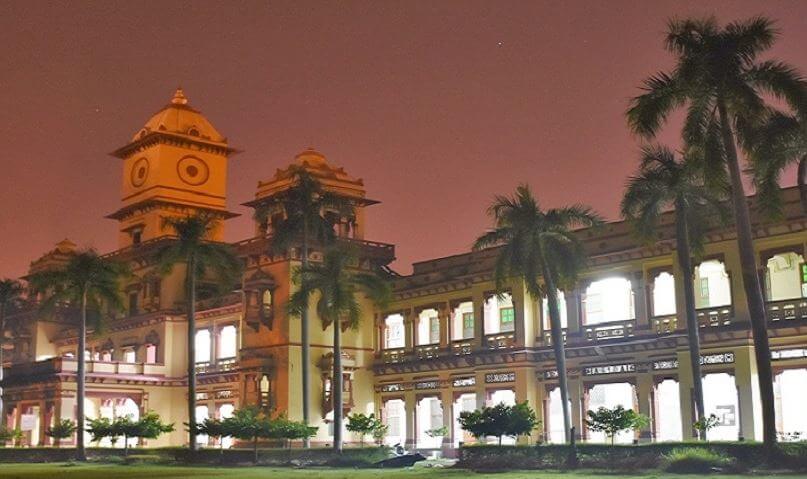
Recently, there was an utterly shameful incident at the Banaras Hindu University (BHU) campus. I am deeply hurt by this crime and am angry because such a disgraceful crime took place in my alma mater, of which I am so proud. The incident in brief is as follows. A female student of IIT, BHU was taking a stroll in front of her hostel along with a male friend on the night of November 02. They were waylaid by three bike-borne men. They manhandled the boy and took her forcibly to a secluded spot at gunpoint. There they molested her, stripped her by tearing off her clothes, took photos and made a video of the gory proceedings and within 15 minutes, escaped through one of the side gates of the campus called Hyderabad Gate. The area has official residences of the faculty and the terrified victim took refuge in the house of a professor for 20 minutes after the criminals let her go. There she narrated her ordeal. After this incident was reported, it came to light that some days back, there was another incident of this type but the girl refrained from reporting it for fear of upsetting her parents.
IIT students were agitated over the incident all the more so because when they first brought the matter to the notice of the proctor’s office, they were reportedly told to go to the police. The police have registered a case under the relevant sections. By the time of writing this article on the evening of November 04, the accused were still at large. The local DCP has said that if any video or photo of the student who was molested is posted on social media, action will be taken.
How the Unique Nature of the Campus Facilitates Crimes

Those who are unfamiliar with the BHU may find it difficult to visualize the incident and might regard it as a freak one. For their edification, there are several unique features of the topography of the campus, which are normally not found elsewhere, and which actually make this campus highly susceptible to such crimes.

Most importantly, it is not a closed and isolated campus with a full boundary wall. The university is located on the outskirts of the city. The huge campus of 1,370 acres, the largest in Asia, is surrounded by villages on three sides and opens to the city on one side. This ‘abnormality’ owes its origin to the fact that the land for the university was donated by the erstwhile Raja of Banaras from his zemindari to Madan Mohan Malviya ji. The land had numerous villages in it whose residents were moved out further. Moreover, in that era (1916), there were but few roads and the villagers could not be left ‘landlocked’. They had to have their right of access. Thus, they were allowed to commute through the university campus. The system has continued more than a century later. At present, there are a number of official and unofficial openings for outsiders.
This means that, at any given time, there are a considerable number of outsiders on the campus. Not only that, the hospital of the Institute of Medical Science is inside its boundary. The hospital is naturally open to the public. Hence, that too contributes to the number of outsiders on the campus. Further, because the campus has a great deal of greenery, it is a favourite spot for hundreds of city dwellers for their early morning and evening walks.
The Negative Role of the Hostels and How to Control Them

The BHU has a whopping 75 hostels. Out of some 30,000 students of the university, about 18,000 reside in hostels. This is actually a highly counterproductive and serious problem, which the well-meaning Malviya ji could not foresee in that era. When you have such a large number of students living in hostels, it is utter naiveté to expect that all of them would be good boys. And, please remember that character certificates issued by gazetted officers known to them have no meaning; they are all ‘managed’. Believe me, I have been a student there and was born in the town, I know better.
Out of this large number of boys, many of them are indeed of criminal tendencies or are friendly with goondas and criminals. These elements often visit them in their hostel rooms and even stay with them unauthorized. This has been going on for ages. There have been incidents of poor beggar women being abducted to the hostel rooms, kept there for days and gang-raped repeatedly. When I was doing my Master’s programme (1977-79), one such criminal was shot dead by the police in the course of a raid to the hostel room following a tip-off, where he was staying with a student.

BHU has had a long history of violent crimes on the campus, including brutal murders. Even when we were kids, a student union leader and a body-builder Santosh Kumar Kapuria was stabbed to death in broad daylight.
Hostels provide ridiculously cheap accommodation. For those students whose basic purpose of residing in the university is to prepare political ground through student politics and ‘dadagiri’ on the campus, there is nothing easier than keep on enrolling in one course after the other and thus hanging on in the university for years altogether.
Had they been obliged to stay in PG accommodations in the city as thousands of civil services aspirants do in Old Rajendra Nagar and Mukherji Nagar in Delhi, they would not feel so free to indulge in ‘dadagiri’. Landlords would kick them out.
Forget the Proctor, Have Proper Campus Security

The very institution of the proctor is a relic of the British. The British, when they had created this institution for their universities in the era of Elizabeth I (that is, 16th century) wanted him to take care of such innocuous things, such as students not wearing academic dress on occasions when it was ordered, and also to order a student not to be out of their college after a certain hour for a certain number of days (“gating”). Poor British had no idea that one day; the campuses of Indian universities would find gun-wielding rapists and murderers roaming the campuses.
The office of the proctor must go and be replaced by proper campus security. There is no need to have an office that tells victims of molestation to merely go to the police. That they could do even without the proctor.
Addressing Campus Security in a Professional Manner
I am giving these suggestions not just as a former DGP, but as a former student and resident of the area who is intimately familiar with every inch of the campus, the city and the nature of the students there.
We will have to first accept that the police station under whose jurisdiction the university falls, cannot afford to spare manpower for patrolling the campus at any time. They have myriad other statutory tasks to perform with limited manpower. They can reach there in an emergency, but the university itself will have to take care of its security.
- The campus security (or proctor, if you insist) will therefore have to greatly expand its staff.
- However, merely having extra staff will not serve any purpose.
- Given the special nature of this university, the campus security staff will need to be given the status of SPOs (Special Police Officers) under the Indian Police Act, of 1861.
- SPOs have the same powers, privileges and protection as regular police personnel.
- Section 17 of the Indian Police Act empowers the magistrate to appoint them.
- In the case of BHU, the university has only to make a request to the state government, which will then order the district magistrate accordingly.
- Jammu and Kashmir has 32,355 SPOs. There is no reason that a campus of 1,370 acres with a great amount of vegetation (meaning spots where there is little light in the night enabling criminals to escape easily, and also secluded spots) cannot have a few hundred SPOs.
- A short basic training course can be designed for them and the UP police can train them.
- This campus security staff must have a distinctive uniform.
- They must be given bikes and jeeps with flashing lights to patrol the university campus continuously at night, particularly in poorly lit areas.
- Patrolling must start as soon as it becomes dark depending on the season, and must continue until daylight breaks.
- They must travel in pairs on bikes and should have the usual paraphernalia/implements like torches, batons, first-aid kits etc.
- The very knowledge that the campus security is patrolling and the very sight of flashing lights, even if they are half a km away, shall be a potent deterrent to potential criminals.
- They must apply for and get permission to use wireless sets to call backup in case of trouble.
- I personally do not approve of such a large number of students in the hostels. However, since it would be difficult to disband the hostels, we will have to place restrictions on students there and their activities.
- The university must make a rule that a student can get hostel accommodation for one course only. If he registers for another course after that, he will have to vacate it and seek accommodation in the city. This is fair because others too are in the queue.
- A most important task of campus security must be to conduct random surprise checks in hostel rooms to look for the presence of unauthorized people and weapons there. All such checks must be video recorded.
- Anything more than a kitchen knife found in the room must call for disciplinary action.
- The presence of firearms must result in immediate expulsion from the university besides registration of a case under the Arms Act.
- Unless such stringent measures are taken, goondaism on the campus cannot be controlled.
- The SPOs, after they have taken necessary action on the spot, must hand over things to the regular police for further legal action.
- To restrict the presence of outsiders on the campus, certain basic measures are necessary.
- First of all, the university must have a proper all-round fence.
- Second, to restrict the entry of villagers and city dwellers into the campus, a proper perimeter road must be made for their use so that their right to access is not violated.
- Until such time that this is done, campus security will have to maintain randomly located ‘nakas’ (checking barriers) at various places in the university.
- The locations of the nakas must be changed frequently so that goondas may not detect a pattern and avoid them.
- They must stop people, frisk them for the presence of weapons or drugs etc. and ask their purpose of loitering at odd hours.
- Anybody who is not a student with a student ID and is found at odd hours must have his Aadhar card with him. This must be given wide publicity by the district administration amongst the public.
- If they cannot give a satisfactory explanation for their presence or movement on the campus at odd hours, they must be detained for further questioning.
- The campus must be, by order, made out of bounds for walkers from the city or villages.
- Do it religiously for a few months and you will feel the difference distinctly.
Anybody who feels that these are ‘excessive’ measures should not complain if tomorrow his own daughter is molested, raped or murdered on the campus by criminals.

